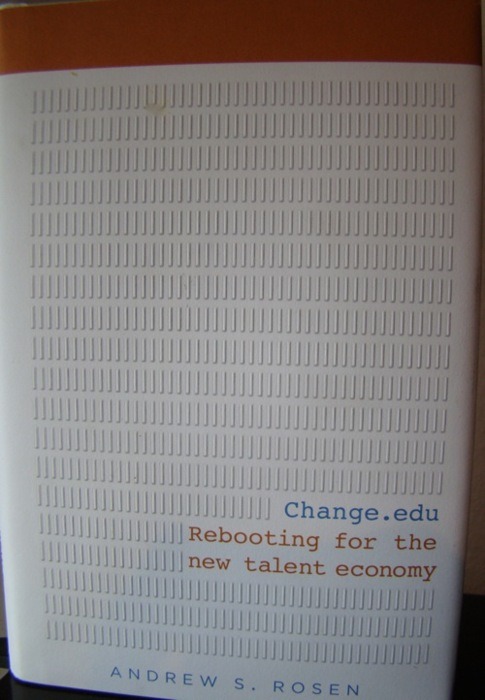
How does the future market of higher education looks like? Andrew Rosen, the CEO of Kaplan, presents his ideas and takes a look in the past of higher education in the USA. At the beginning there were colleges, like the Harvard College. Interestingly, there isn’t much known about John Harvard. The most important thing was that he donated his library and half of his money after his dead to the nearby college.
At this time, Harvard was a college where young men could learn about science and the arts. Most, didn’t graduate. It was rather so that they stayed two years there and learned about different subjects. Other universities like Brown or Princeton had a similar history. They play be the same rules. Tons of money, highly prestigious, strong in research. Rosen says they use the Ivy-League Playbook.
The next higher education institutions came later when people found out that American agriculture is much less efficient that European because the lack of knowledge. This lead to land-grant colleges which provided knowledge for farmers. The older colleges were strictly against this type of colleges because it would undermine the spirit of higher education. Today, some of those land-grant colleges evolved into Cornell University or the MIT.
A more modern form of these land-grant colleges are community colleges. The offer education for everybody, for people who aren’t “college material”, who want to improve their skills or who want to learn something new. These colleges play be the All-Access Playbook.
If we move a bit in time a new form of higher education institutes evolves. Like the Kaplan University or the University of Phoenix. These institutions focus on learning and a lead like a company. Basicially they are like All-Access institutions but a bit more advanced. This is the For-Profit Playbook.
Before we go future playbook, I will show why Rosen made this distinction. Lots of decent institutions try to play the Ivy-League Playbook which is called Harvard-envy. Instead of spending money on the education of their students, they spend their money on new buildings or try to buy famous professors. They try to build up their prestige.
A nice example is the High Point University that spend tons of money in building a prestige luxury resort for students. That’s nice, sure but you can’t argue that these investments are necessary for better learning.
The future playbook is the Learning Playbook. Rosen shows what could be and encourages institutions to try to become a learning institution instead of accumulating more prestige. The Learning Playbook focuses totally on student’s learning. It will use modern technology, use new scientific findings to improve the learning. Learning will become more individualist, more mobile and more global.
Andrew Rosen did a great job in presenting the history of higher-education in the US and differentiating it. I don’t know if the Learning Playbook will be so institutionalized because we saw more and more small players and micro education platforms like skillshare.com. But of course, it’s uncertain but it would be nice if he included that. Great book!
